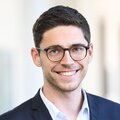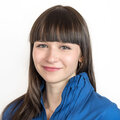Next-Geo Program
Junior Research Training in Geoeconomics
The Next-Geo program is a new, pan-European research and training network on Geoeconomics for junior researchers. Our aim is to support the next generation of geoeconomists.
The program is coordinated by the Kiel Institute in cooperation with CEPR, Bocconi Unversity (IEP), and Oxford University Department of Economics, funded by Stiftung Mercator.
Every year, Next-Geo will bring together a cohort of around 10 junior scholars conducting research on geoeconomics. We invite advanced PhD students and early Postdocs from economics and related quantitative fields across Europe to apply.
The program has a one-year duration and is conceived as an add-on fellowship program for junior scholars. The program should complement the training and mentoring at their home university or institution, focusing specifically on geoeconomics. We will provide academic lectures, research training, project mentoring, policy advisory training, and many networking opportunities in Geoeconomics.
Fast lane to
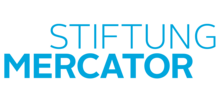
Funder
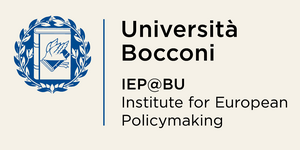
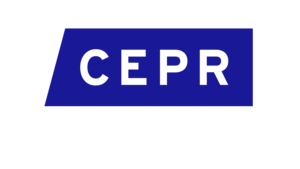

Partner
Purpose of the program
The first research and training program in geoeconomics
The interplay between economics and geopolitics is becoming ever more important in a rapidly changing world order. The demand for excellent research and expertise in geoeconomics is high. However, there is still little systematic training on the topic. Next-Geo aims to change that.
Next-Geo is the first research and training program focusing exclusively on the growing field of geoeconomics. We support excellent PhD students and early Postdocs from economics and closely related quantitative fields in building the expertise to shape the frontier of geoeconomics research.
The research topics will include, among others, economic security, trade coercion and fragmentation, industrial policy, sanctions design and evasion, global financial flows, economic aid, climate and energy transition, and defense economics.
Connecting young geoeconomists across Europe
Young researchers working on geoeconomics are scattered across Europe, often isolated within their departments and academic communities. Few universities have specialized professors with the specific expertise to optimally supervise students on geoeconomic topics. We aim to overcome this fragmentation by building a strong network of early-career researchers in geoeconomics and connecting young economists working on the topic – both with one another and with leading senior scholars across institutions and countries.
What we offer
Next-Geo participants become part of a highly competitive, carefully selected cohort in geoeconomics and receive rigorous research training and mentoring from Kiel Institute researchers as well as Senior Fellows who are leading international experts in the field of geoeconomics. We will combine online and in-person modules and provide funding for travel and accommodation.
What the program offers:
- A unique network of geoeconomics researchers: Be part of the top-class cohort and network in the field of geoeconomics.
- Academic excellence and training at the research frontier: A central aim of the program is to support cutting-edge research in the field. Participants will attend lectures and receive training on the research frontier in geoeconomics - from internationally renowned external scholars and from researchers at the Kiel Institute who are experts in the field.
- Improve your research and get feedback: Participants will work on their own research or policy project — supported by expert mentoring.
- Data access and research support: Particularly promising research projects of the participants can get support from research assistants or receive funding to purchase data access.
- Immerse yourself in the Kiel Institute, a leading source of geoeconomic research, policy advice, and analysis across academia, policymaking, and the media. With the Kiel Geoeconomics Initiative, the international flagship Kiel-CEPR Conference on Geoeconomics, the Kiel Institute-led CEPR Research Policy Network (RPN) on Geoeconomics, the Ukraine Support Tracker, and a new research center on geoeconomics forthcoming, the Kiel Institute is among the leading institutions on the topic worldwide.
- Generous financial support: Travel and accommodation expenses for in-person modules are covered by the program (on-site attendance is expected).
- Tangible output: By the end of the program, participants should have completed a high-quality research or policy project in the field of geoeconomics. The best projects may be published as working papers or policy briefs by the Kiel Institute or CEPR and presented at conferences and workshops. Participants will receive a certificate of program participation.
- Engage with policymakers, think tanks, and practitioners through events and workshops at the Kiel-CEPR Research Hub in Berlin and partner institutions.
The program is led by the Kiel Institute, in cooperation with partner institutions including CEPR, Institute for European Policymaking @ Bocconi University, and Oxford University Department of Economics, and funded by Stiftung Mercator.
Program Structure
Next-Geo is a one-year, add-on fellowship program that participants complete together as a cohort. It combines online and in-person modules spread across the academic year, starting with an online kick-off in winter and followed by workshops, e.g. in Kiel, Berlin, or Milan before ending with the Kiel-CEPR Conference on Geoeconomics in autumn. Within the program cycle, participants develop a research or policy project on their own or in collaboration with their peers and the senior researchers. The program kicks off with participants presenting their project ideas in winter, followed by lectures and workshops, and concludes in autumn with the Kiel-CEPR Conference on Geoeconomics, where selected projects will be presented.
Timeline
1. Winter – Online Kick-Off
Participants meet virtually to present their research or policy project ideas and receive an introductory lecture on the foundations of geoeconomics.
This stage lays the groundwork for collaborative learning and project development.
2. Spring – Lecture & Research Training (Kiel)
A multi-day in-person module featuring
- advanced academic lectures by leading scholars,
- training on producing high-quality, policy-relevant research, and
- structured feedback sessions on each participant’s project progress.
This phase deepens academic subject knowledge and helps refine research design and methodology.
3. Summer – Policy & Research Workshop (Berlin and/or other European location)
A hands-on multi-day workshop focused on bridging research and policy. Activities include
- sessions on writing policy briefs, political communication, stakeholder mapping, and fundraising,
- exchanges with policymakers, think tanks, and practitioners,
- presentation of ongoing research projects in seminar formats
Participants gain essential skills for effective policy engagement and public outreach.
4. Autumn – Outreach & Networking at the Geoeconomics Conference (Berlin)
The program concludes at the flagship Kiel-CEPR Conference on Geoeconomics, where participants
- attend the leading academic conference in the field,
- may potentially present their research projects to an international expert audience,
- compete for the best research paper or best policy brief with their peers,
- engage in networking with scholars and political decisionmakers.
Who should apply?
Advanced PhD candidates and early Postdocs in economics from/in Europe:
- excellent CV and track record
- in economics, exceptionally also in closely related quantitative research fields
- working on geoeconomic research
- enrolled or employed at a European university or research institution as a PhD student or early Postdoc (program start up to 2.5 years post-PhD). European nationals at overseas institutions may also be eligible in selected cases.
- excellent English skills
The program is an add-on program for those conducting their PhD or PostDoc at a European institution. As such, it does not provide an employment contract, stipend, living expense allowance, or formal degree. We only fund travel and accommodation for on-site modules, and research support. Participants remain fully enrolled or employed at their home institution and will have no claim of employment or enrollment at the Kiel Institute.
We particularly encourage applications from female researchers. All nationalities are eligible if employed or enrolled in Europe.
How to apply
Applications should include:
- CV
- Cover letter
- 1-page research project sketch
- Writing sample, e.g. third-year paper, job market paper
- Names of two potential references (contact information in your CV suffices)
Successful candidates will have to provide a proof of enrolment or employment and, if employed, a written permission by the employer to participate in the program.
The selection process of the 2026 cohort is complete.



